Dan Levy is more than just an accidental gay sex symbol…
By Nelson Branco
A lot has changed in the world since MTV personality Dan Levy became a breakout name during his popular stint as The Hills After Show co-host with Jessi Cruickshank in the 2000s. You’d have to have been languishing in a coma for the past few years not to realize we’re living in uncertain, game-changing times.
But for the Toronto-born son of Eugene Levy and Deborah Devine, the world’s topsy-turvy social, tech-dependent and political narrative inspired him to punch up his passion/dream project and bring the zeitgeisty yet funny and relatable CBC flagship sitcom Schitt’s Creek to the international masses.
His pansexual trust-fund character, David Rose, is stuck spending a seeming eternity in his designer duds in a washed-up small town his family happens to own because his now broke parents— business tycoon (played by dad Eugene) and former soap star/socialite (portrayed by Catherine O’Hara)—have lost everything and now have to start from scratch.
Having earned two Canadian Screen Awards (for Best Comedy and Writing) last year, the 33-year-old is once again nominated in all major categories, including competing with his father as Lead Actor.
But don’t expect a Daddy Dearest story thread in real life.
Levy, who used to write a column for Flare, tells IN, “Winning a Best Actor award would be cool but unless something crazy happens, I don’t have many expectations that I’d beat my dad! Just to be nominated in the acting category was a big thing for me because I started out wanting to act. I put my acting aspirations on hold so I could focus [on the behind-the-scenes aspects of my career], so my audition skills are rusty.” He adds, laughing, “Luckily, I got to cast myself in this!”
IN spoke to the ambitious and thoughtful—not to mention handsome—actor, writer and producer about why he didn’t see a need for a formal coming out, how he navigates social-media discourse, why he made his character pansexual, and whether he’d ever return to the reality-TV genre.
Making David pansexual was a bold decision. You were ahead of the headlines on that one.
When I was sussing out characters, it just felt like a good fit for him. We didn’t want to make a big deal about it in the show. Just the depiction of his sexuality has been a really great thing for me to tell a story of a town with a cast of characters who don’t judge. To be able to tell that story, you’re hopefully leading by example. It’s been amazing to hear feedback from the audience. The idea of sexuality, in my life, is not a big deal.
But it is a big deal for some, where your series airs on America’s Pop network.
Fans have come up to say: ‘My brother’s gay and my parents are having a real hard time with it, but to see how [David’s parents] Johnny and Moira have accepted their son so wholly and without question has informed them.’ You realize, in those moments, the power of TV, because we’re just telling stories in a room but you sometimes forget how widespread those stories are and how affecting they are to some. David came out on the show by way of a wine analogy: ‘I have sampled red and white wines…and occasionally rosés [laughs]! I got a lovely email from a young guy who used our wine analogy to connect with his parents. It’s incredible to hear those kinds of stories.
What’s happening in today’s discourse? From gender to sexual fluidity to the trans movement—a new conversation is taking place.
I don’t really know. Or rather, I don’t know enough to say concretely. It does feel like there is a younger generation that is much more open and more educated on gender fluidity and the complexity of sexuality. This new generation realizes how multi-faceted human beings truly are. I think that a lot of the [older] generations see sexuality in black and white. I do feel like this younger generation is seeing it in colour. And I don’t mean to completely generalize, but I’m just talking from what I’m seeing and reading out there. I think the Internet has helped a lot in terms of opening dialogue and conversation about sexuality. There are also a lot of people writing some great thought pieces now that challenge the norms.
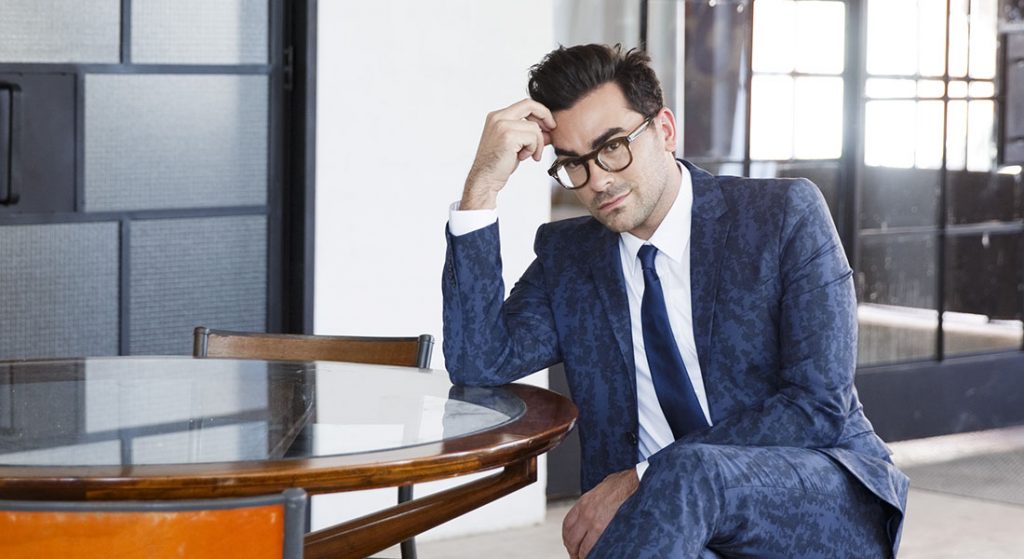
An article focused on the ‘Bro Sex phenomenon’ (straight men having sex with other straight-identifying men) went viral a while back. It appears that not only is the millennial culture questioning sex and gender preconceptions but they’ve kind of rejected everything—even the most archetypal of labels.
Exactly. There’s a whole generation that has been raised to feel like, ‘If I don’t feel a certain way, I don’t have to feel it; if I don’t want to do something, I don’t have to do it.’ What came of that is a complete rejection of labels. There is a hypersensitivity to this subject too. It’s hard to talk about. You look at Lena Dunham, who has gotten into trouble having this conversation. It’s as simple as miscommunicating an idea and then you’re attacked. We’re in an age where opinion means everything. People are ripping apart everything that is opinion-based—both good and bad. It’s a hot political time, which I think is a great thing. I’m learning as much as I can but, at the end of the day, when it comes to sexuality, it’s about having conversations and realizing you can’t know everything. All you can try to do is educate yourself as best as you can to be as open and sensitive as possible.
In Flare, you said you were a member of the queer community, but you haven’t really talked much about being gay.
I never really kept it a secret. Blame it on my self-worth issues but I didn’t genuinely think that I needed to [come out officially]. I’m sure there are other people who would argue otherwise.
Straight people are assumed to be straight until proven otherwise, so it does put pressure on us to state our truth. When people say, ‘I don’t want to talk about my personal life,’ I get that. To me, that means your favoured sexual position or who you are dating, the state of your relationship or medical history. To me, saying you’re gay is just admitting what gender you are. It’s just a fact.
There’s a difference between actively hiding your sexuality and not. For me, I don’t necessarily want to hear about someone’s personal life on a talk show. Someone’s baby story isn’t the most interesting subject matter to me when I’m watching The Tonight Show so, as a person, I assume no one cares who I am dating—or, more importantly, even if I am dating someone. I do understand—when you reach a certain level of visibility—there’s, in a way, a responsibility to say you’re gay. I mean, I was in Out [magazine] two years ago. I sort of figured since I was in the Out 100, there wasn’t a question of my sexuality [laughs]! It’s such a hot topic in terms of obligation and responsibility. All you can do is try your best. I’ve always been vocal about my support of the community. I use social media as best I can by sharing articles that offer supportive viewpoints and information.
What was it like coming out to your parents? I’m assuming—and I know that’s a stereotype—it was easy-ish given your father is an actor and comedian.
My family, fortunately, was completely open and accepting. It was a very easy thing. I think with anyone, there are fears attached to when and how to come out. Again, it’s a strange thing because no one else has to go through that. It’s a bizarre thing to do to pull your parents aside and talk about your sexual preference. It’s something straight people don’t have to do—and hopefully, gay people won’t have to do it either. But to answer your question: there was no drama in the Levy house.
Were your parents cautious about you entering show business? I’d be more worried about that.
No. They were very supportive. Any concerns or fears they had about me getting into entertainment, they didn’t vocalize—which was probably for the best [laughs]! All parents should be supportive when their child wants to pursue their dreams or at least try. That sort of helped me…having no pushback.
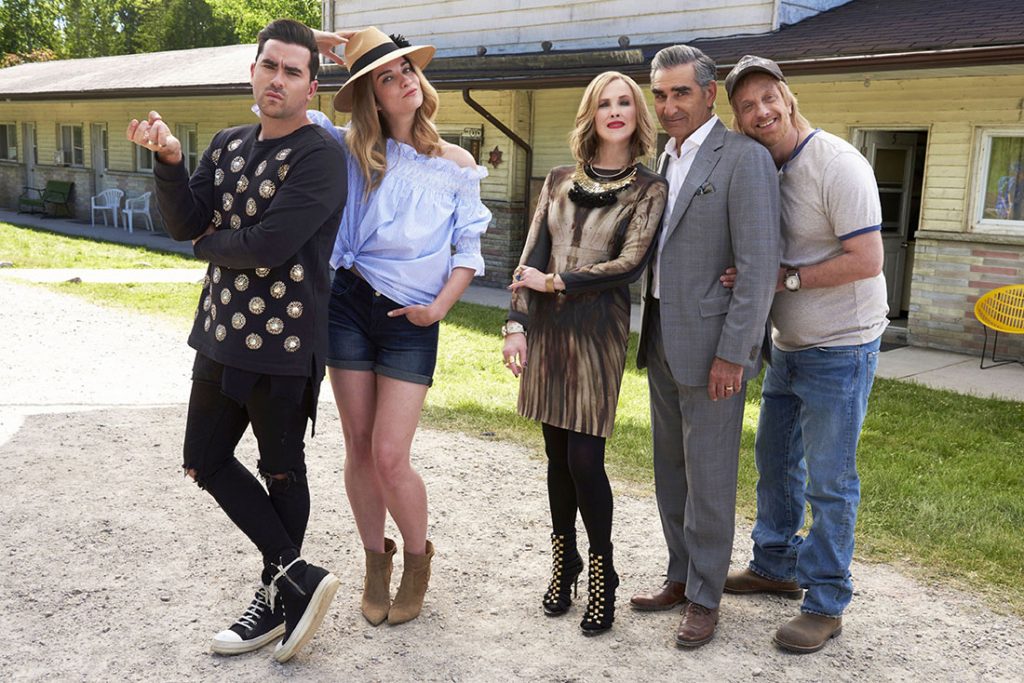
What is it like being an accidental sex symbol? Several blogs have written pieces on you as the new face of the geek/hottie aesthetic movement.
[Laughs] Speaking of passive-aggressive judgments! If you happen to wear glasses, you’re labelled a geek. I remember thinking, that’s a flagrant judgment on how people look. But yeah, you know…I don’t think I’m a Ryan Gosling, that’s for sure. I’ve thought very little about it. I spend my days in a writers’ room or edit suite, so I don’t get that much attention from the outside world in that realm. But I’m flattered by the accidental sex symbol status [laughs].
You are definitely a style and fashion icon. And that’s been written about too.
I’m just glad my glasses caught up with the trend. I’ve been wearing thick glasses since I was 16. I think personal style is getting up in the morning and wearing what makes you feel good. Hence, people have responded to my style. It’s great. It’s offered me opportunities to explore fashion in ways I don’t think I ever could otherwise. It is something I love, appreciate and pay attention to, particularly on the show.
Fashion is an important character on Schitt’s Creek.
Yes. I work very closely with our costume designer, Debra Hanson, in terms of styling the family on the show. It’s a very intense process because the Rose family came from money, so you want them to look like money. To be able to work in that realm and dip my toes in the fashion world by having access to clothes we use on the show has been really fun.
I loved your tweet reminding Prime Minister Justin Trudeau that he has yet to fulfill his election promise that gay men will one day be allowed to donate blood in Canada without discriminatory limitations. What was the reaction?
I didn’t receive any negative response. As for the usual trolls, you just block people you don’t necessarily want to hear from. That’s what is great about social media at this point: you can really curate your world to include those who really care about what you’re talking about and sharing. I, for one, don’t see a point in tearing someone down just because you disagree with what they are talking about.
People’s inner constitutions are so fragile right now. ‘I love apples’ will lead to ‘How dare you love apples and not oranges; die mother*cker!’
Yes! [Laughs] I know! It’s crazy. We all need to do our best and try to be as good to one another as we can. That fundamentally needs to happen now: we need more respect and awareness for other people.
It’s ironic: the more communication tools we have, the less effectively we’re really communicating.
That’s it. When you read these intense criticisms, they feel more like an ego trip for the people writing them. It’s almost like they’re looking for an opportunity to tear someone down. Again, and unless it’s slanderous, ignorant and hateful, we’ll only learn when we have more open dialogue—not reactive, but more constructive.
You live in Toronto but you used to live in LA, and you still spend some time there. Are you worried about US President Donald Trump dismantling the LGBTQ progress that Barack Obama made?
All I can do is hope that Trump brings out the passion in people, the passion for change. The most important [strategy] is to combat a lot of what he stands for, which is intolerance, racism and homophobia. And that’s something that isn’t okay and it’s not something that should be empowered in people.
What do you think of reality TV as a vet?
I have not watched an episode of reality TV since I left The Hills After Show. I walked away and never looked back. I literally have no interest.
What if Oprah Winfrey came to you and/or your family and wanted to produce a smart reality series on the Levys on OWN?
You’d really have to offer something on a personal level to people that they’d be interested in. And maybe it’s because I’m Canadian, but I just don’t have that kind of ego.
Boxers or briefs?
Boxer briefs, how about that?
NELSON BRANCO is the editor of 24 Hours Toronto newspaper. As a contributing editor, he’s penned pieces for magazines like Hello Canada, People, TV Guide and online sites like Huffington Post. He’s also worked as a TV producer for Breakfast TV, The Marilyn Denis Show, CTV News and Sun News Network. You can follow him at @nelliebranco.

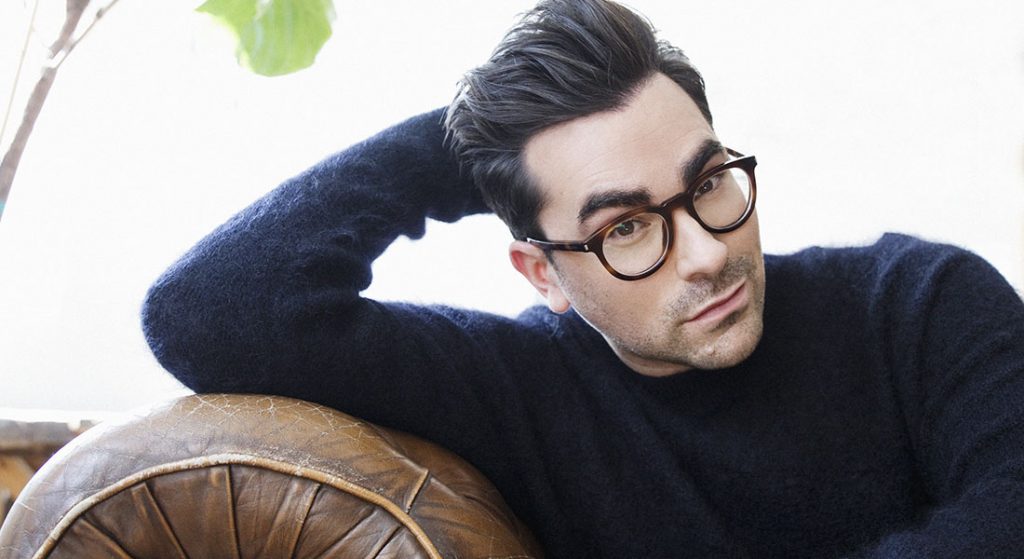
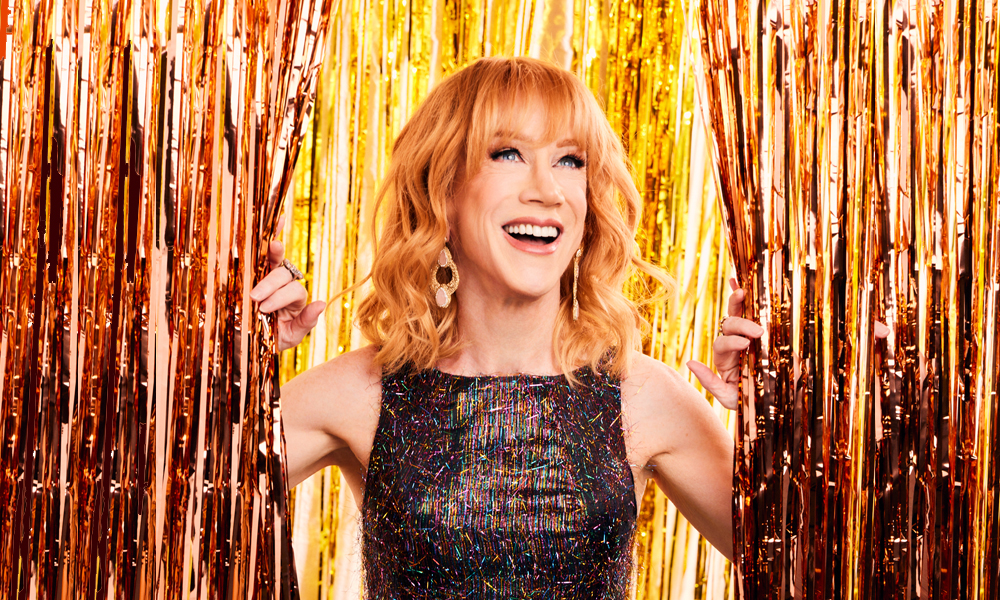
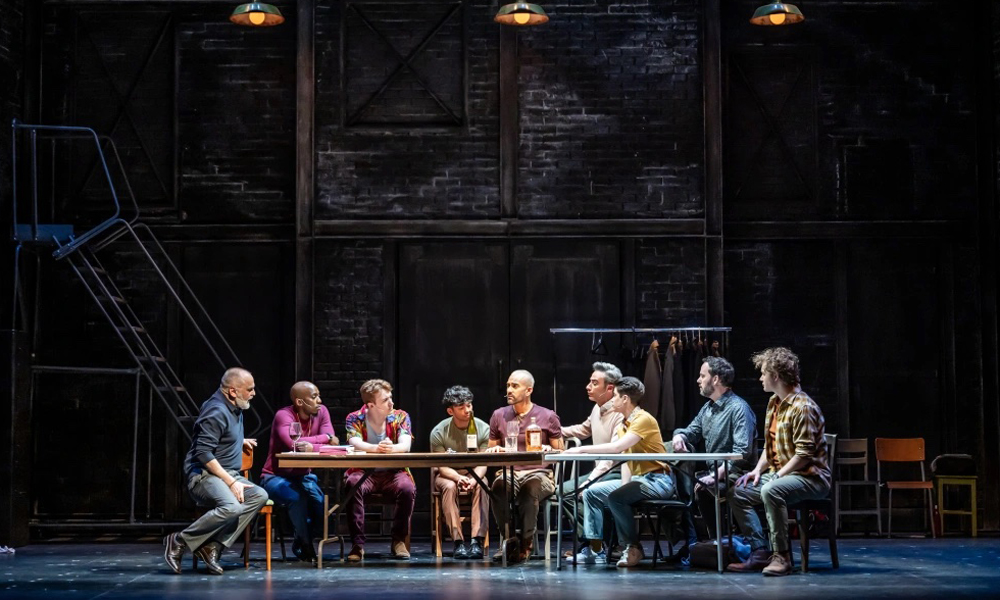
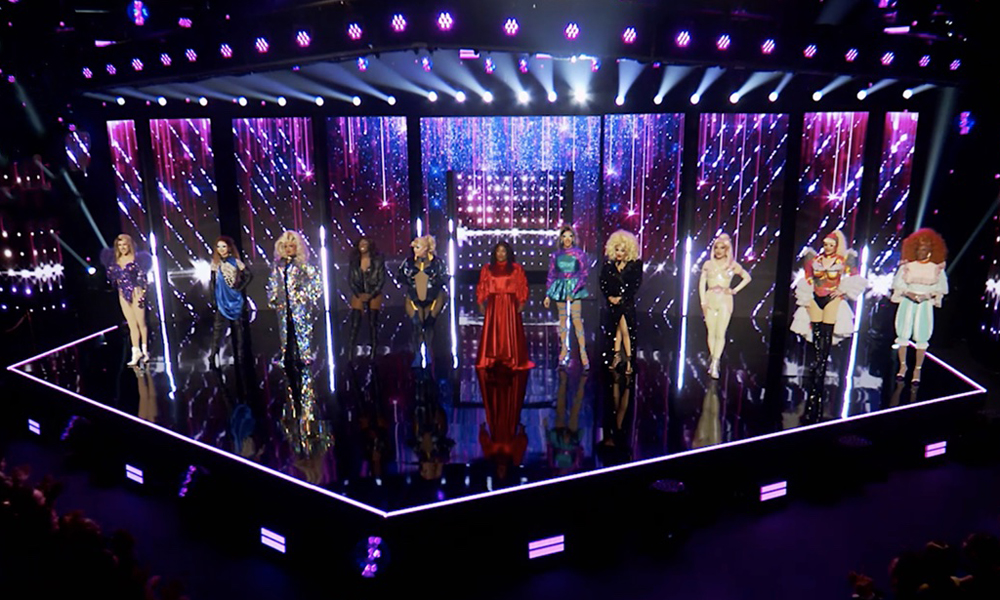

POST A COMMENT